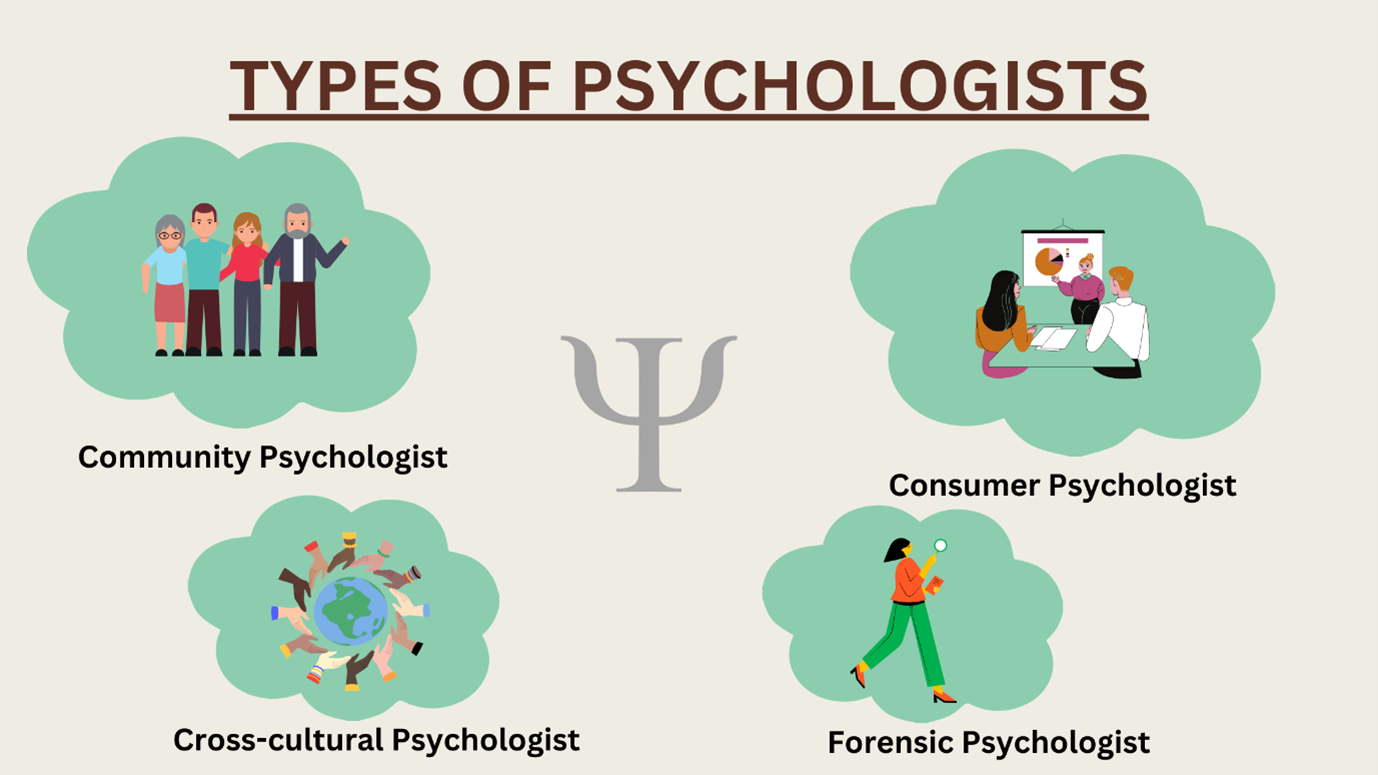Psych Treatment: A Comprehensive Guide to Strategies and Results

Cognitive-Behavioral Therapy
Cognitive-Behavioral Therapy (CBT) is a widely made use of psychotherapeutic technique that concentrates on recognizing and changing inefficient thinking and habits patterns. Developed in the 1960s by Aaron T. Beck, CBT incorporates behavior and cognitive concepts to address various psychological wellness concerns, including anxiety, stress and anxiety, and stress-related problems. The facility of CBT is that maladaptive ideas add to emotional distress and maladaptive actions. By reorganizing these ideas, individuals can attain significant renovations in their emotional wellness and daily performance.
CBT is defined by its structured, goal-oriented nature. Therapy typically involves a joint process in between the therapist and customer, where specific issues are recognized, and sensible strategies are established to address them. Strategies such as cognitive restructuring, direct exposure therapy, and skill-building workouts are typically utilized. Cognitive restructuring involves tough and modifying adverse thought patterns, while direct exposure treatment aims to lower anxiety and stress and anxiety with progressive exposure to feared things or circumstances.
Evidence-based research supports the efficiency of CBT for a large range of psychological problems - Best Psychologist in Delhi. Its emphasis on ability procurement and self-help strategies encourages clients to proceed progress separately after treatment concludes. The flexibility and effectiveness of CBT have made it a keystone in contemporary psychotherapeutic method
Psychodynamic Methods
Rooted in the early concepts of Sigmund Freud, psychodynamic approaches concentrate on discovering the unconscious mind and its influence on actions and emotions. These approaches intend to reveal covert ideas and sensations that may be driving maladaptive habits and psychological distress. Central to this approach is the idea of internal problem, usually originating from unsettled previous experiences, specifically those from childhood years.
Therapists using psychodynamic techniques utilize numerous crucial techniques, consisting of free organization, where people are urged to speak easily to disclose subconscious material, and dream analysis, which translates the latent web content of dreams. Additionally, the expedition of transfer and countertransference dynamics within the healing connection is essential. These interactions can offer insights right into the person's internal world and relational patterns.
Psychodynamic therapy is typically longer-term compared to various other modalities, supplying a deep and extensive understanding of the individual's subconscious. Study shows that it can be particularly efficient for complicated mental health and wellness problems, such as character problems and chronic anxiety. By promoting self-awareness and psychological insight, psychodynamic therapy seeks to bring subconscious product to awareness, making it possible for people to accomplish meaningful and long-term change in their read more lives.
Humanistic Techniques
Structure on the foundations laid by psychodynamic techniques, humanistic techniques supply a distinct viewpoint concentrated on private possible and self-actualization. Coming from the mid-20th century, these techniques prioritize the intrinsic goodness and growth potential of people, stressing an alternative sight of human experience. Trick numbers such as Carl Rogers and Abraham Maslow have actually considerably influenced this healing approach, which includes techniques like client-centered treatment and Gestalt therapy.
Client-centered therapy, developed by Rogers, plays a critical duty in humanistic methods. It counts on the therapist offering a setting of genuine favorable respect, empathy, and congruence. This fosters a safe space for customers to discover their feelings and experiences without judgment, facilitating self-discovery and individual growth. The specialist's role is even more of a facilitator than an authority, encouraging customers to harness their internal resources for recovery.
Gestalt therapy, an additional important humanistic technique, emphasizes existing moment recognition and the assimilation of mind and body. By concentrating on the "present moment," clients get greater understanding right into their existing emotions and habits. Methods such as role-playing and led visualization are commonly used to help clients get a much deeper understanding of themselves, ultimately causing boosted self-awareness and fulfillment.
Integrative Therapies
Integrative treatments stand for a synthesis of numerous therapeutic techniques tailored to satisfy the one-of-a-kind needs of each client. This method recognizes the intricacy of human psychology and the complex nature of psychological wellness issues. By combining aspects from different institutions of psychiatric therapy-- such as cognitive-behavioral treatment (CBT), psychodynamic treatment, and humanistic strategies-- integrative treatments supply a more holistic and versatile treatment paradigm.
Professionals of integrative treatment examine each customer's certain requirements, signs and symptoms, and personal history to develop a personalized treatment plan. This individualized approach enhances the possibility for healing success by resolving the origin of mental distress and promoting here are the findings overall well-being. Strategies could include mindfulness workouts, cognitive restructuring, and psychological processing, each selected to target various elements of the client's concerns.
Furthermore, integrative treatments stress the restorative relationship, watching the client-therapist bond as a critical part of reliable treatment. This partnership promotes a supportive setting where clients really feel risk-free to explore and resolve their issues. The flexibility of integrative treatments makes them suitable for a wide series of problems, including anxiousness, depression, injury, and interpersonal problems, thereby boosting their applicability and effectiveness in varied medical setups.

Gauging Therapy End Results
Reviewing the efficiency of psychotherapy is essential for both medical professionals and customers to guarantee that the therapy is producing the desired end results. To achieve this, numerous methods and devices are employed to determine therapy outcomes methodically. Standardized evaluation tools, such as the Beck Depression Stock (BDI) and the Generalized Anxiousness Disorder 7 (GAD-7), supply measurable dig this data on sign extent and changes gradually.
In addition to standardized devices, qualitative approaches like client self-reports and medical meetings supply important insights right into the individual experiences and regarded progress of clients. On a regular basis scheduled assessments, normally at the start, midpoint, and end of therapy, assistance in tracking the trajectory of enhancement or identifying areas needing modification.
Result dimension is not restricted to signs and symptom decrease; it additionally incorporates useful renovations in day-to-day live, such as better interpersonal connections, enhanced job performance, and enhanced general wellness. Modern developments in electronic health and wellness have introduced mobile apps and online platforms that help with real-time monitoring and feedback, further refining the analysis procedure.
Eventually, a detailed technique to determining therapy results makes sure that healing treatments are efficient, effective, and tailored to fulfill the specific requirements of clients, thereby maximizing the total restorative experience.
Conclusion
Humanistic strategies focus on personal development and self-actualization, while integrative therapies integrate numerous methods for tailored therapy strategies. Assessing treatment outcomes through standard analyses and qualitative methods guarantees a thorough understanding of effectiveness, eventually assisting customers toward sustaining mental health and wellness renovations.
From the organized approach of Cognitive-Behavioral Therapy (CBT) to the deep exploration of the unconscious in psychodynamic treatment, each approach brings one-of-a-kind benefits. Its emphasis on skill acquisition and self-help techniques equips clients to continue development individually after treatment ends (Best Psychologist in Delhi). Trick figures such as Carl Rogers and Abraham Maslow have actually substantially affected this therapeutic technique, which encompasses techniques like client-centered therapy and Gestalt therapy
